By Rebecca Drew
THIS ADORABLE little boy was diagnosed with a rare chromosome condition and doctors said that he wouldn’t be able to sit, crawl, stand, walk or even talk but has proved everyone wrong by reaching the milestones his parents were told he wouldn’t.
mum and former nurse, Jennifer Bothe (32) originally from Alberta, Canada but now living in North Carolina, USA, met her nano-electrical engineer husband, Kyle (34) whilst at university and they were married in 2010. Jennifer and Kyle welcomed their first child, Ella (3) in 2016.
In 2017 Jennifer fell pregnant for a second time but a routine genetic screening early in her pregnancy indicated red flags that couldn’t be identified without further testing which showed her unborn son had one kidney. Jennifer gave birth to her son, Ethan in March 2018 and in the months that followed he underwent further testing.
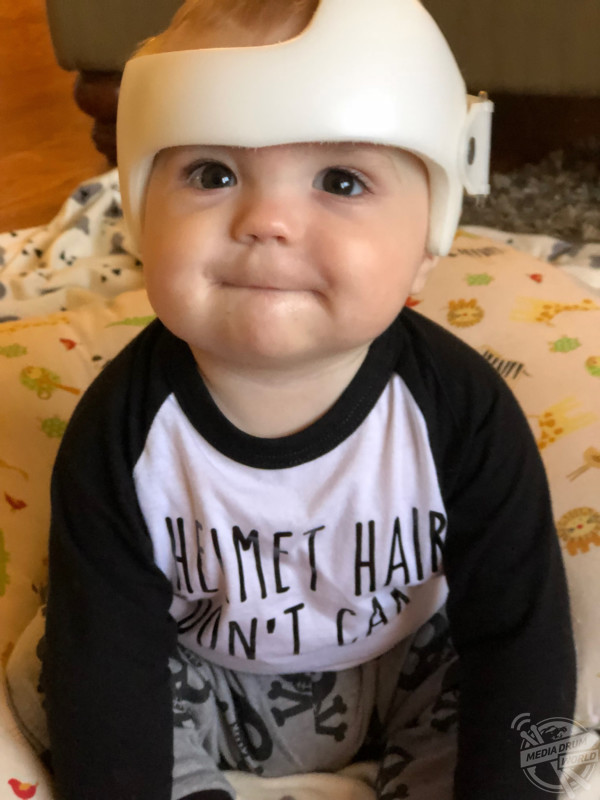
In July 2018 Jennifer and Kyle attended their first geneticist appointment where they were told that Ethan had distal chromosome 18q deletion syndrome, a rare genetic condition that can lead to further medical diagnoses. Heartbreakingly, the couple were told that Ethan wouldn’t be able to sit up, crawl, stand, walk, talk or live an independent life and that he might lose his sight and hearing.
Jennifer and Kyle were told that Ethan would need to be monitored by specialists and that he would need intensive therapy, including physical, occupational, speech and feeding – which Jennifer has dedicated herself to ever since.
Over the past year, Ethan has had countless tests and doctor appointments to determine how his condition is affecting him. He has low muscle tone which makes it difficult for him to reach his motor milestones, has camptodactyly, a condition that means he can’t straighten the joints in his fingers, allergies, reflux, a growth deficiency and has been wearing a cranial helmet as his head was starting to develop asymmetrically.
Remarkably Ethan takes everything in his stride with a smile on his face and his arrival has made the family stronger. Ethan has managed to defy doctors and started to crawl in February this year and since can now pull himself up to stand and can say; ‘mama’, ‘dada’, ‘Ella’, ‘bye’ and waves, claps and shakes his head.
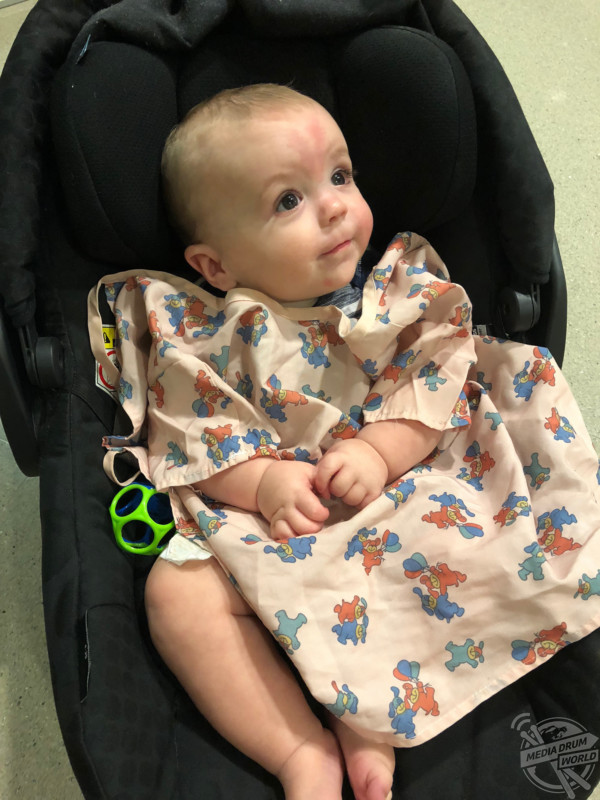
“I had my blood taken for a routine genetic and health screening, it was identified that there were some red flags, but the doctor and lab were unable to determine what these issues were without further testing. I was sent to a prenatal high-risk clinic and from there we proceeded with additional testing including an amniocentesis in order to gain more information,” said Jennifer.
“We knew something was not one hundred per cent with Ethan, but we didn’t have a name for it until this meeting with the geneticist. Frankly, Kyle and I were both really positive it was nothing big because after he was born all the doctors who examined him said that he checked out fine aside from his camptodactyly.
“When we sat down with the geneticist she said: ‘I’m very sorry to tell you this but your son has a rare genetic condition called chromosome 18q deletion syndrome. After examining him today, we can see that he has hypotonia which means he has very low muscle tone. This, in combination with his diagnosis, means he likely won’t sit up, crawl or walk and he may never talk. There is a high risk of him losing his vision, and his hearing as he gets older and he will be very short in stature because he will probably have low growth hormone. He will need to be examined by a cardiologist, an endocrinologist, an optometrist, an audiologist, a neurologist, a cranial head specialist, a gastroenterologist, a urologist, and an orthopaedic surgeon. He will also need intensive therapy including physical therapy, occupational therapy, speech therapy and possibly feeding therapy. He will never have children, and certainly he will never live an independent life.’
“I felt like I had been hit with a ton of bricks. Just hours before this appointment Kyle and I had been discussing how lucky we were that Ethan had examined so well. I had worried for nine months of pregnancy only to feel an overwhelming sense of relief when we were told he seemed to ‘check out fine’ and now I was being told he had an extremely complicated genetic condition.
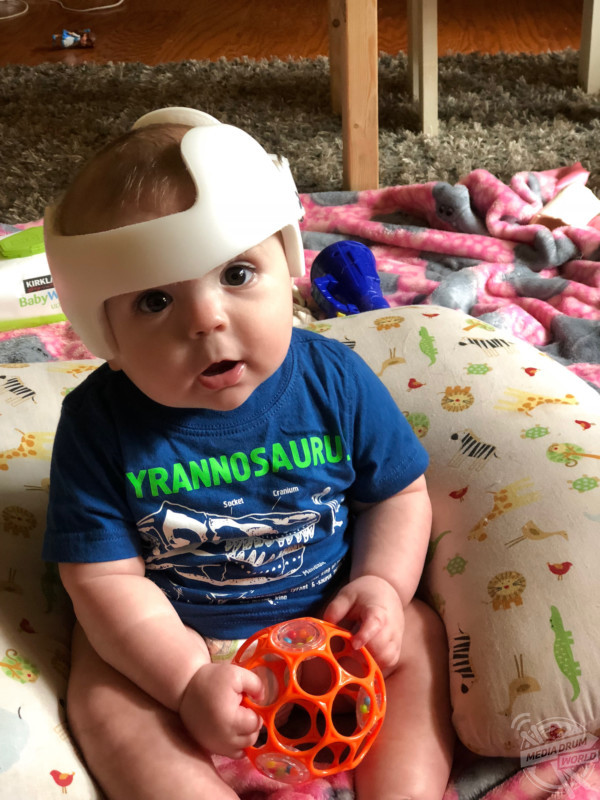
“Under the weight of the doctor’s words I just crumbled. In that moment I felt my heart shatter into a million pieces and I cried. It was a cry so completely full of anguish and heartache because I felt like someone had told me my baby had died. And in a way, I did need to grieve the baby that I thought I had, in order to make room for the baby that I did have. Kyle was shell shocked and silent but I sobbed. I sobbed and sobbed.
“I wish I could go back to that moment and tell that sobbing heartbroken woman what I know now. I wish I could tell her that Ethan would be one of the greatest gifts of her life, and that he would teach her more about love and patience, strength and resilience than she would ever know.
“I wish I could tell her that he would thrive and be beautiful and loving, and that everyone who’s life he touched would feel blessed to meet him. I wish I could tell her that he would move mountains with his strength and surpass all sorts of barriers to reach milestones that this doctor stated he would never reach.
“I’ve come to realise that Ethan was not the baby that I expected to have. He is so, so much more.”
Chromosome 18q deletion is a rare genetic condition that leads to a variety of medical conditions. It is a chromosomal disorder in which there is a deletion of part of the long arm of chromosome 18. The level of severity varies from case to case and deletions are either proximal where the deletion is closer to the centre of the chromosome or distal where the deletion is at the end.
Its characteristic features generally include, a short stature, hypotonia (poor muscle tone), hand and foot abnormalities, head and facial abnormalities which can include microcephaly (small head), a ‘carp shaped’ mouth, deep set eyes or an unusually flat or underdeveloped midfacial region.
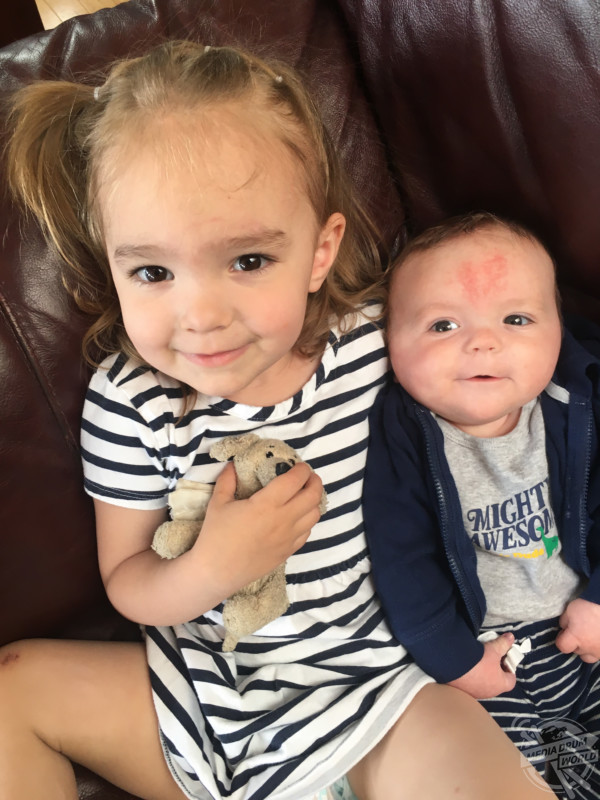
According to the U.S. National Library of Medicine, chromosome 18q deletion occurs in approximately one in 55,000 newborns worldwide.
It can be inherited from either parent but can also be ‘de novo’, which means that it is unique to the person effected, as was the case with Ethan as both Jennifer and Kyle were tested for the deletion and came back negative.
“So far, it seems that Ethan has largely been affected by his deletion from a developmental standpoint. He has what is called hypotonia meaning he has quite low muscle tone, which can make it difficult for him to achieve his motor milestones. He also has a condition of his hands called camptodactyly which means he cannot straighten some of the joints in his fingers, which can make it difficult for him to use his hands the way a child without this issue would,” said Jennifer.
“He has also had a lot of difficulties with allergies and he has been diagnosed with FPIES (food protein induced enterocolitis syndrome). He has had severe reflux and some kidney issues, and he also has some anomalies with his feet but we haven’t determined what those exactly are yet.
“We have also found that Ethan has a growth hormone deficiency meaning his growth in all areas has been significantly slowing since he was born. There are a lot of other medical conditions that commonly arise as a child with 18q grows up so we need to be mindful of these and watch for any signs or symptoms of these as he gets older.
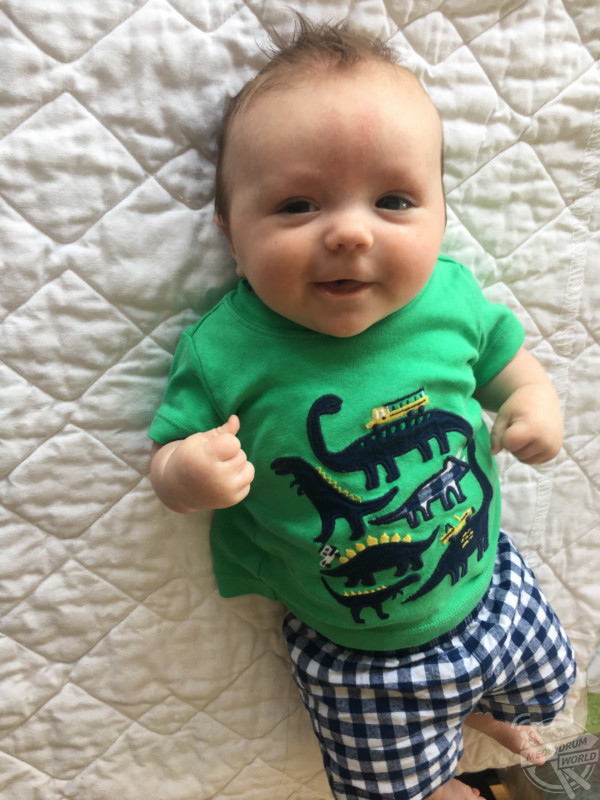
“The first therapy Ethan participated in was chiropractic care. He had extreme torticollis, meaning the muscles on one side of his neck were extremely tight, which lead to plagiocephaly (flat head) which is why he wears a cranial helmet. Chiropractic care was our first attempt at helping Ethan to correct his plagiocephaly before moving forward with his helmet.
“Currently, Ethan sees physical therapy, occupational therapy and feeding therapy on an ongoing and weekly basis. Without their help and early intervention, I think it’s safe to say that Ethan would not be nearly as far as he currently is. We are so grateful for all their help, and they truly feel like part of the family now.
“I think it would be difficult to do justice to the feelings a parent has when their child achieves something huge. And to the parents of a child with a diagnosis sometimes things that are simple to other parents are huge milestones to us.
“The first time Ethan stood up at a small table I cried, the first time he said mama I cried, the first time he swallowed food that wasn’t pureed I cried. I’m sure you sense a common theme here. I was completely overwhelmed with emotion every time Ethan achieved something we knew was infinitely difficult for him. He truly works harder for everything which makes it that much more amazing when he achieves it.”
Jennifer shares her family’s journey on Instagram to raise awareness for Ethan’s rare condition. Watching her two children grow closer is something that fills Jennifer with joy.
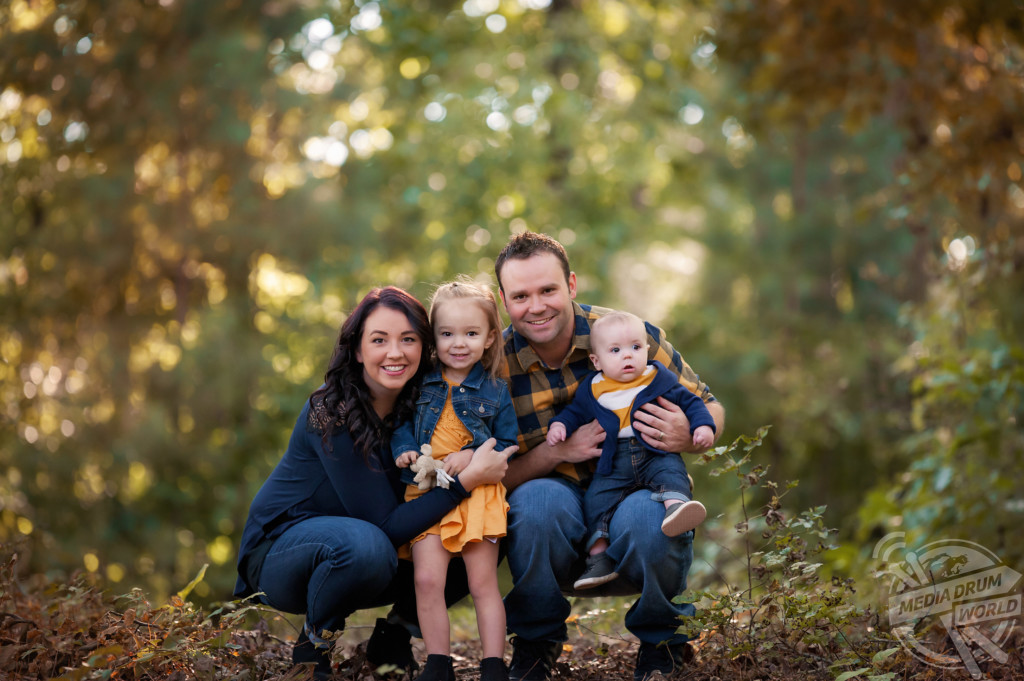
“Ethan is without a shadow of a doubt the sweetest, most genuinely happy soul I have ever had the pleasure of interacting with. His big brown eyes and smile bring joy to any room. He spends most of his days giggling and smiling. He is social and loves to interact with people, and he has this undeniable ability to make whomever he encounters instantly fall in love with him,” said Jennifer.
“He is only a year old so I’m certain he can’t comprehend everything he has been through, but he does take it all in stride. No matter what comes his way he gets through it with positivity and a smile. I never tire of doctors and nurses telling me he’s the happiest, easiest, most cooperative patient they’ve ever had.
“Ethan is awe-struck by his sister Ella. As a mother, it is unbelievably heart-warming to see the two of them interact. I think she is likely his favourite person. He spends so much time watching her every move and learns things from her every day. His love for her is undeniable and to say he already looks up to her would be an understatement.
“She is the perfect sister for him. I think even at only three years old she senses his vulnerability, which allows her to be extremely empathetic and caring. She never hesitates to lend a hand where her brother is concerned, she loves to feed him, help with baths, changes, entertainment, and she watches all of his therapy appointments closely. I can see their bond getting stronger every day. He makes her a better person.”
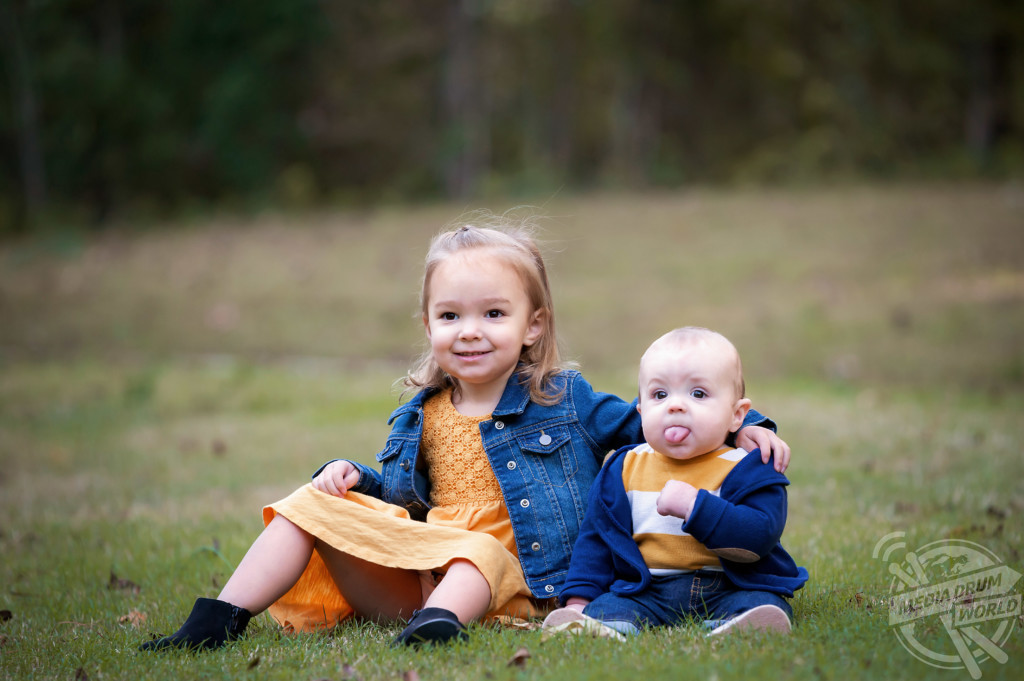
Finally, Jennifer shared her words of advice to other families who might be going through a similar situation and to the doctor who gave them such a bleak prognosis.
“I would tell the doctor to just work on their delivery a little more, to put themselves in the shoes of the parents who they are talking to, and to understand how difficult hearing an unexpected diagnosis would be for them,” she said.
“I’ve since heard that in medical school they train doctors to say, ‘I’m sorry’ when they are delivering a diagnosis like this. But I firmly believe that needs to change. Parent’s don’t want sympathy for the existence of their child and saying, ‘I’m sorry’ makes it seem like there’s something devastating to be sorry for, when in fact, these babies can teach us more about love, acceptance and inclusion than anything or anyone else in this world.
“If I was choosing a message to convey about this diagnosis it would be to expect the unexpected. Children are so resilient and so much stronger than we give them credit for. Your child will do almost everything any other child would do but he will be on his own timeline, don’t compare him to other kids because he is unique and an individual.
“Allow yourself to accept that things will happen at a different rate and you will be able to celebrate even the tiniest milestones as huge successes! Miracles happen every day, so never give up on your child.
“Everyone is just in awe of Ethan. They can’t believe how far he has come in such a short time. He continues to beat the odds of his diagnosis every day and we have an amazing, vast network of support cheering him on.”
For more information see www.instagram.com/meant_to_be_your_mama






